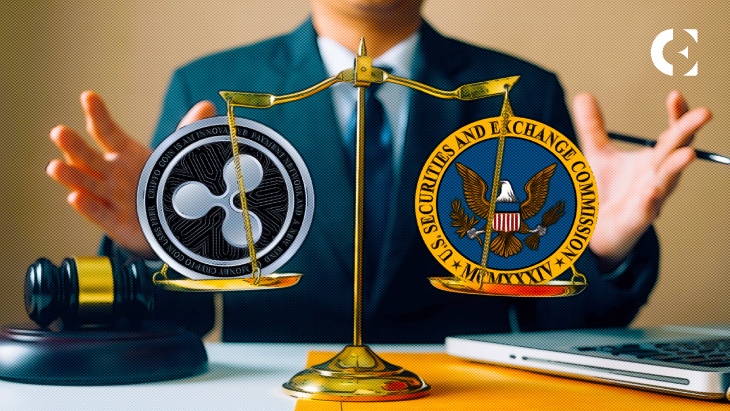- Ripple and the SEC submitted a proposed schedule for remedies discovery and briefing to Judge Analisa Torres.
- The parties presented a structured timeline for collecting and producing discoveries related to the remedies.
- Both parties have the right to produce rebuttal reports against their opposite team’s discoveries.
Ripple Labs and the Securities and Exchange Commission (SEC) recently submitted a proposed schedule for remedies discovery and briefing to Analisa Torres, the presiding judge of the Southern District of New York. According to an X post shared by former Federal Prosecutor James K Filan, both parties have taken the initiative to confront the next phase of the protracted legal tussle.
Ripple and the SEC structured a mutually desirable timeline for the discovery phase. They decided to collect details of the incidents that took place prior to the regulator’s initial accusations against Ripple. During the discovery phase, Ripple’s lawyers will be able to question the SEC in search of evidence to support their defense. Likewise, the SEC will be able to depose attorney Anthony Bracco, a key witness for Ripple, and submit documents supporting its claims.
The SEC has requested a period of 90 days from the scheduling order’s entry date for this discovery phase. Ripple is permitted to submit a revised version of a report submitted by Bracco, the SEC could depose the attorney within the first ninety days from the issuance of the scheduling order.
The court permits both parties to produce rebuttal reports for their opposite party’s discoveries. However, in terms of the Federal Rules of Civil Procedure, no third-party discovery requests are permitted without the court’s approval.
Meanwhile, at DC Fintech Week, Ripple CEO Brad Garlinghouse reiterated the platform’s firm determination to fight against the regulator in the Supreme Court. He also reiterated the need for more comprehensive crypto regulatory rules in the U.S. to restore the nation’s lead in the crypto industry.
Disclaimer: The information presented in this article is for informational and educational purposes only. The article does not constitute financial advice or advice of any kind. Coin Edition is not responsible for any losses incurred as a result of the utilization of content, products, or services mentioned. Readers are advised to exercise caution before taking any action related to the company.










